Best Online Colleges that Accept FAFSA
Are you looking for online colleges that accept FAFSA? This article offers a brief outline of FAFSA-approved online schools.
Thinking about online education but unsure about meeting those tuition payments? To know your eligibility for any financial aid, the first step is to fill out the Free Application for Federal Student Aid (FAFSA) form. Hundreds of schools across the USA accept the FAFSA form in their admissions process to assess the financial needs of prospective students.
But are there online schools that accept FAFSA?
This might be the first question that comes to mind when considering online colleges. Unfortunately, the truth is that when you compare on-campus and online schools, you’ll find out that fewer online colleges accept FAFSA overall. But, online colleges that accept FAFSA are still out there.
In this article, we’ll tell you everything you need to know about qualifying for federal student aid, give you our recommendations for the best online colleges that accept FAFSA, and show you the steps you need to take to begin. Let’s get right to it!

What Kind of Financial Aid Can I Get for College?
There are a few different types of financial aid online colleges accept to help reduce your education costs. You most likely already know about scholarships, fellowships, and grants. However, you can also explore other options, such as federal work-study employment, private employer benefits, and private student loans.
Private student loans tend to be a form of financial aid that many students choose to help support their education. However, checking whether you qualify for federal financial aid before you go for private loans is vital. Federal student aid and loans often offer lower interest rates, more repayment plans, and other benefits and features that can make your college costs more manageable.
Online colleges accept financial aid from the government, too, so that they can provide you the benefits as long as you qualify for FAFSA.
What is FAFSA?
FAFSA, or the Free Application for Federal Student Aid, is a standard form that all prospective US college students fill out if they want to receive financial aid from the government and qualifying educational institutions. Colleges use the FAFSA form to assess the financial need of their applicants.
Here are a few important points you must know about the FAFSA:
- The FAFSA is an application form that must be filled out by every college student who needs financial aid to determine their eligibility. You’ll receive information about your eligibility through the Student Aid Report (SAR)
- SAR includes Expected Financial Contribution (EFC) so that universities know how much money applicants’ families will contribute to their tuition
- Institutions use the EFC to determine your eligibility for the financial aid provided by the college itself
- To keep receiving the aid every year, you must maintain a satisfactory GPA and meet all course requirements
FAFSA Eligibility Requirements
Any student, whether full-time, part-time, online, or on-campus, must meet specific criteria before filling out the FAFSA. They must:
- Have a high school diploma or an acknowledged equivalent degree
- Demonstrate financial need
- Be a U.S. citizen
- Have a legitimate Social Security number
- Be registered with Selective Service if a male and if their age is from 18 to 25
- Enrolled in an acceptable and accredited online college that accepts FAFSA or a diploma program
You will have to fill out the FAFSA every year if you want to receive federal financial support throughout your education, specifically through a Renewal FAFSA form. Fortunately, filling out your FAFSA shouldn’t take too long if you know what you’re doing.
FAFSA Eligibility Requirements for Schools
Just like you have to qualify for FAFSA to receive its benefits, colleges and universities must also meet eligibility requirements to provide these benefits.
Colleges and Universities must apply to join the Title IV program offered by the United States Department of Education (ED), regardless of whether they are brick-and-mortar or online institutions. If the ED decides the school is eligible, the school can then begin accepting and providing federal financial aid to its students.
But what are the eligibility requirements that FAFSA-approved online colleges have to meet?
First and foremost, schools must have adequate staff and faculty to be able to provide students with a high-quality education. They must also be able to uphold the high standards of privacy and recordkeeping required by the ED.
Other requirements that schools must meet include but are not limited to:
- Meeting the basic criteria set forth by the ED for programs and institution types
- Being state-authorized to offer postsecondary programs
- Maintaining particular program requirements
- Recording students’ locations
- Remaining state compliant
- Accreditation from an ED-recognized accrediting agency
Schools accepted into the Title IV program must then undergo regular FSA (federal student aid) compliance audits, as well as program reviews.
Filling Out the FAFSA
Filing out the FAFSA isn’t a complicated process. There are three ways to fill out the FAFSA:
- Online at www.fafsa.gov
- Mailing a PDF FAFSA, found at https://www.fafsa.ed.gov/options.htm
- Completing a FAFSA paper. Your college or university counselor may also have forms available.
List of Best Online Colleges that Accept FAFSA
Compared to traditional colleges, there are fewer accredited online colleges that accept FAFSA. However, we have curated a list of the best online colleges accepting financial aid from the federal government to help you get started. You can see some of the top schools below:
- Anna Maria College
- Benedictine University
- Bradley University
- Lasell College
- Lewis University
- Maryville University
- Seton Hall University
- St John’s University
- Utica College
- Walsh University
- Widener University
1. Anna Maria College
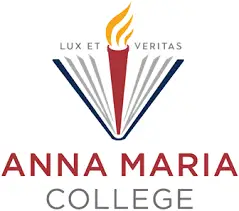
- Location: Paxton, Massachusetts
- Accreditation: NECHE
- Acceptance Rate: 74%
- Graduation Rate: 46.6%
- Average Annual Tuition Costs: $38,630
Located in Paxton, Massachusetts, Anna Maria College is a private Catholic liberal arts online college. It’s accredited by the New England Commissioner of Higher Education. Students have 24/7 access to tech assistance and can receive guidance from a dedicated Student Services Coordinator. Some of the prominent programs offered by the college are as follows:
- Bachelor of Science in Fire Science
- Masters of Health Emergency Management
- Registered Nurse to Bachelor of Science in Nursing
- Masters of Homeland Security
- Master of Criminal Justice
2. Benedictine University

- Location: Lisle, Illinois
- Accreditation: HLC
- Acceptance Rate: 63%
- Graduation Rate: 46.6%
- Average Annual Tuition Costs: $32,700
Benedictine University is a private, Roman Catholic university founded in 1887 and located in Lisle, Illinois. It is accredited by the Higher Learning Commission (HLC). Benedictine’s online programs benefit students looking for the right opportunity to finish a bachelor’s degree or a master’s program that fits their needs. Some of the prominent programs offered by the college are as follows:
- Masters of Business Administration- MBA
- Master of Public Health (MPH)
- Master of Science in Nursing (MSN)
- Master of Science in Accountancy
- Dual Degree Programs like MSN, MBA, and MHA
3. Bradley University

- Location: Peoria, Illinois
- Accreditation: HLC
- Acceptance Rate: 67%
- Graduation Rate: 78.2%
- Average Annual Tuition Costs: $33,360
Bradley University is a private university founded in 1897 and located in Peoria, Illinois. It is accredited by the Higher Learning Commission (HLC). More than 90% of Bradley students receive some form of financial assistance award. Some of the prominent programs offered by the college are as follows:
- Doctor of Nursing Practice- Leadership Track
- Master of Science in Nursing- Family Nurse Practitioner
- Registered Nurse to Bachelor of Science in Nursing
4. Southern New Hampshire University
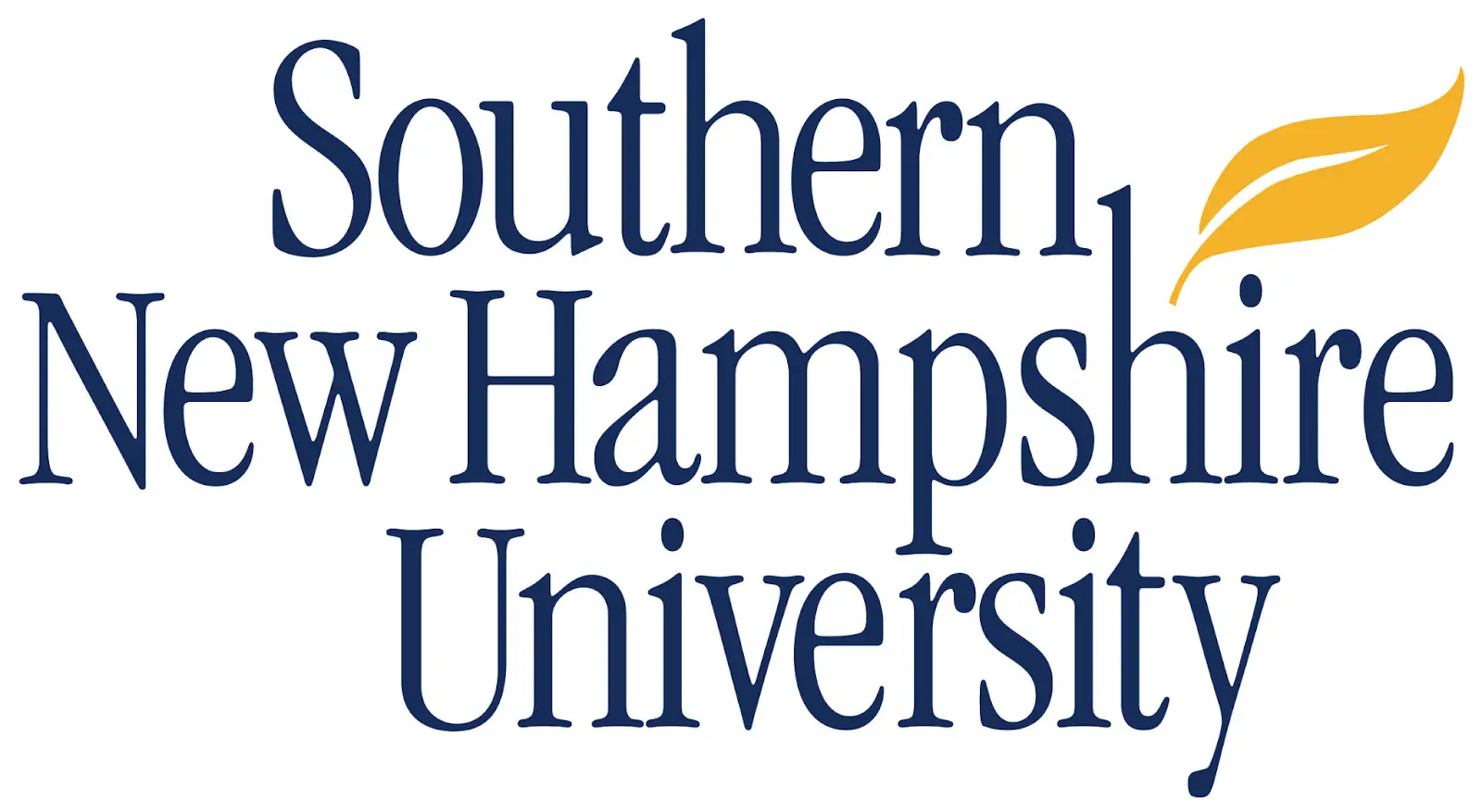
- Location: Manchester, New Hampshire
- Accreditation: NECHE
- Acceptance Rate: 73%
- Graduation Rate: 32.7%
- Average Annual Tuition Costs: $30,756
Southern New Hampshire University offers over 200 online degree and certificate programs. A nonprofit university accredited by the New England Commission on Higher Education, SNHU accepts the FAFSA application and offers one of the lowest tuition rates in the country. It’s a great online option for prospective students on a strict budget.
Some of their popular online degree programs include:
- Bachelor of Business Administration
- Bachelor of Criminal Justice
- Bachelor of Computer Science
- Bachelor of Psychology
5. Purdue University Global
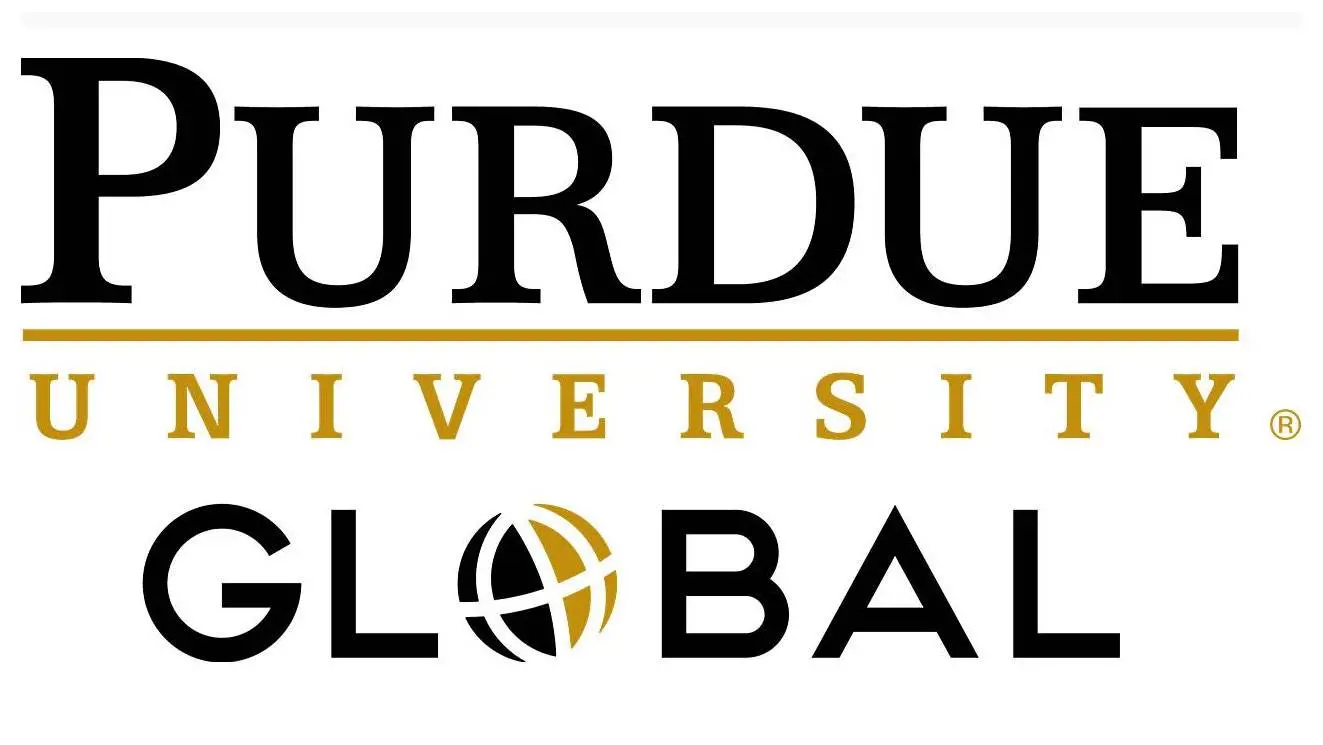
- Location: West Lafayette, Indiana
- Accreditation: HLC
- Acceptance Rate: 56%
- Graduation Rate: 32.5%
- Average Annual Tuition Costs: $9,992 for in-state students; $28,794 for out-of-state students
Purdue University Global is ranked as one of the best universities in the world by the Wall Street Journal. It accepts FAFSA and is a school that tailors online, flexible programs to working adults. Some popular online programs offered by Purdue include:
- Bachelor of Engineering
- Bachelor of Science in Nursing
- Master of Science in Finance
- Master of Public Health
- Master of Science in Aeronautics and Astronautics Engineering
6. Lasell University

- Location: Auburndale, Massachusetts
- Accreditation: NECHE; more information on LU’s accreditations is available here
- Acceptance Rate: 84.5%
- Graduation Rate: 60.5%
- Average Annual Tuition Costs: $40,980; more information here
Lasell University is on a 54-acre campus and is a private university located in Auburndale, Massachusetts. It offers degrees in the liberal arts, sciences, and professional fields of study. It is accredited by the Commission of Accreditation of Athletic Training Education.
The programs offered are flexible and convenient. Some prominent programs offered by Lasell University include:
- Master of Business Administration
- Master of Science in Marketing
- Master of Science in Criminal Justice
- Master of Science in Management
- Master of Science in Communication
- Master of Science in Nutrition for Human Performance
7. Lewis University
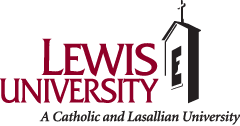
- Location: Romeoville, Illinois
- Accreditation: HLC
- Acceptance Rate: 58%
- Graduation Rate: 63.3%
- Average Annual Tuition Costs: $32,300
Lewis University is a private university located in Romeoville, Illinois. It is accredited by the Higher Learning Commission (HLC). Students here will be assigned a personal Student Services Coordinator to guide them throughout the academic year. Some of the prominent programs offered by the college are as follows:
- Master of Science in Aviation and Transportation
- Master of Business Administration (MBA)
- Master of Science in Business Analytics
- Master of Science in Computer Science
- Nursing, BSN, MSN, DNP
8. Maryville University
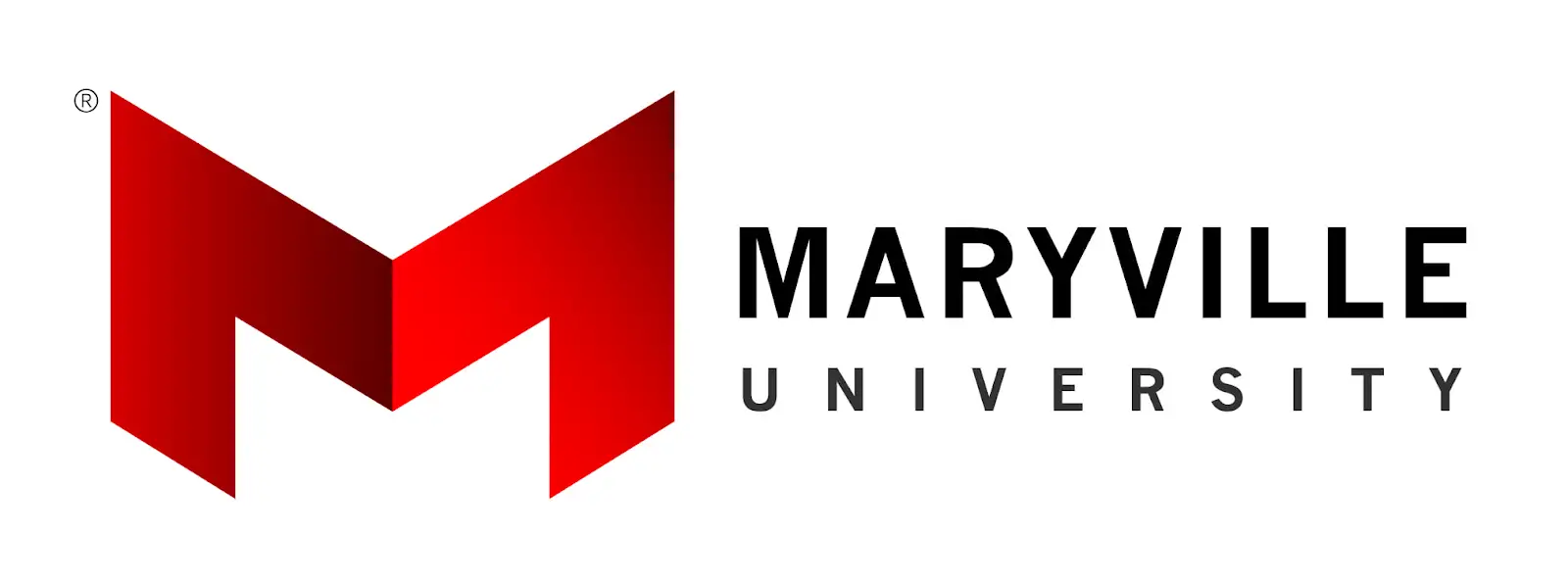
- Location: Town and Country, Missouri
- Accreditation: HLC
- Acceptance Rate: 55%
- Graduation Rate: 35.3%
- Average Annual Tuition Costs: $34,070
Maryville University is a private university located in Missouri and was initially founded in 1872 by the Society of the Sacred Heart. It is accredited by the Southern Association of Colleges and Schools Commission on Colleges. Maryville University offers scholarships to incoming students ranging from $19,000 to the total cost of tuition. Some prominent programs provided by the college include:
- EdD in Higher Education Leadership
- Strategic Communication and Leadership.
- Master in Data Science
- Bachelor of Arts
9. Seton Hall University
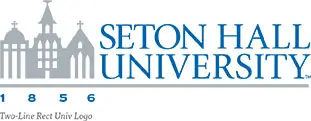
- Location: South Orange, New Jersey
- Accreditation: MSCHE
- Acceptance Rate: 70%
- Graduation Rate: 69.6%
- Average Annual Tuition Costs: $39,900
Seton Hall University was founded in 1856 and is located in South Orange, New Jersey. Established by James Roosevelt Bayley, this university is accredited by the Middle States Commission on Higher Education. The college’s online programs have the same quality instruction as its on-campus programs. Some of the prominent programs offered by the college include:
- Master of Science in Accounting
- Masters of Business Administration (MBA)
- Master of Public Administration in Non-Profit Management
- Master of Science in Nursing, Adult-Gerontology Nurse Practitioner
10. St John’s University
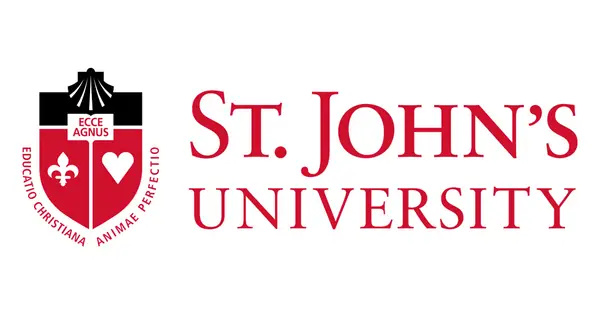
- Location: Queens, New York City
- Accreditation: MSCHE
- Acceptance Rate: 73%
- Graduation Rate: 60.7%
- Average Annual Tuition Costs: $40,680
St. John’s University is a private Roman Catholic university located in New York City and founded in 1870. It is accredited by the Middle States Commission on Higher Education. Full-time online degree students receive an IBM laptop and access to a range of student services. Some of the prominent programs offered by the college are as follows:
- Master of Science in Library and Information Science
- Ph.D. in Literacy
- Master of Public Health
11. Utica University
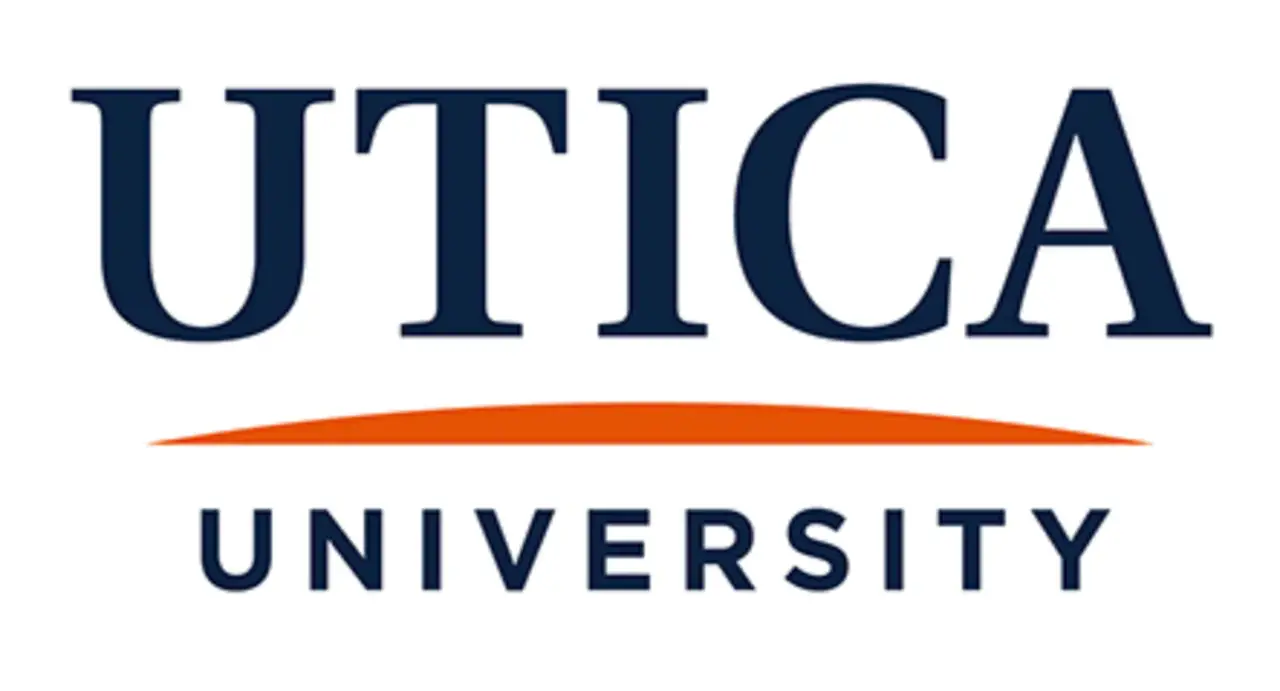
- Location: Utica, New York
- Accreditation: MSCHE
- Acceptance Rate: 84%
- Graduation Rate: 53.1%
- Average Annual Tuition Costs: $20,832
It is a private university located in Utica, New York. It is accredited by the Middle States Commission on Higher Education. It provides the same quality of education found in its physical classrooms. Some of the prominent programs offered by the college are as follows:
- Bachelor of Science in Nursing
- Masters in Cybersecurity
- Master in Data Science
- Bachelor of Science in Criminal Justice
- Financial Crime and Compliance Operations Certificate
12. Widener University

- Location: Chester, Pennsylvania
- Accreditation: MSCHE
- Acceptance Rate: 69%
- Graduation Rate: 61.7%
- Average Annual Tuition Costs: $45,028
Widener University is a private university founded in 1821 and located in Chester, Pennsylvania. It is accredited by the Middle States Commission on Higher Education. Some of the prominent programs provided by the college are as follows:
- Master of Business Administration
- Online RN-to-BSN
- Master of Social Work
- Dual Degree Program

Other Online Colleges That Accept FAFSA
The above 11 universities aren’t the only FAFSA-approved online schools out there. Here are a few more online colleges that accept FAFSA:
- University of Phoenix
- Our Lady of the Lake University
- Capella University
- Concordia University, Portland
- Colorado Technical University
- Grantham University
- Baker College
- Grand Canyon University
- University of Florida
- Penn State World Campus
Applying for Federal Financial Aid for Online Colleges
The list above might help you find an online school with financial aid, but how exactly do you fill out your FAFSA application? And what do you need to get it all done? Check out our quick guide below.
What Do You Need to Apply for FAFSA?
Before filling out the form, it is better to meet FAFSA Requirements to complete the application process effectively. Such documents and details are as follows:
- Social Security numbers
- W-2 forms for the past year
- Reports of additional, untaxed income
- Federal tax returns for the previous year
- Investment documents for the prior year
- Bank statements and account data
When Does the Department of Education Accept FAFSA Forms?
The department of education will start accepting FAFSA forms after October 1. However, check your university website for more specific deadlines that they might have for financial aid applications.
Financial aid is generally awarded on the basis of First-Come, First-Served, which means if you file your FAFSA earlier, there’s a chance there may be more aid available to you.
Expected Family Contribution and the Student Aid Report
After applying for FAFSA electronically, you will receive a Student Aid Report (SAR) within two weeks. The SAR is a report that shows or indicates how much of the educational expenses you and your family will have to bear that specific year. This is what is called the Expected Family Contribution (EFC).
The difference between the cost incurred in college and your expected family contribution will indicate your financial need.
Step-by-Step Guide: How to Apply for Federal Aid for Online Schools that Accept FAFSA
Create your Federal Student Aid (FSA) ID
You can choose to accomplish this step now or when you have to sign and submit your FAFSA application, but either way, you will need an FSA ID.
The FSA ID is your username and password. It has a few uses, including but not limited to:
- eSigning your FAFSA application form
- Logging into the myStudent Aid app
- Checking the processing status of your financial aid
- Signing your loan documents
Prepare Your Required Documents
The next step is to gather all the required documents. You should also make sure to keep all of these documents and records safe because there’s a pretty good chance you’ll need to submit them again in the future.
List Your Chosen School(s)
When completing your FAFSA application, you need to provide at least one college that automatically receives notice of your FAFSA information once processed. You’re required to provide at least one school, but you can add up to ten (in no particular order). If you’re worried that the schools may find out about the other schools you’re considering, don’t worry — schools can’t see this information.
Sign, then Submit Your Filled-Out FAFSA Form
Once you’ve completed all the necessary parts of your FAFSA application so you can take online classes with financial aid, the next step is to sign your form. You must sign your form using your FSA ID, as this ensures the fastest possible processing. You may also need to get one of your parents to sign the form if you have provided their information in your application.
If you don’t feel like eSigning your FAFSA, you can put your signature on it physically instead. This isn’t the recommended method, but you can print out the form, add your signature, then mail it in.
Review Your SAR (Student Aid Report)
Once your FAFSA application has been processed, you’ll receive your SAR or Student Aid Report, which contains all the information you submitted. Double and triple-check all of this information to ensure its accuracy and make corrections where needed.
Accept Your Offer
Finally, you’ll receive your offers from online colleges with financial aid. Note that these offers are not college acceptance or admission. Instead, these offers will let you know the expected cost of attendance for each school and the financial aid available to you. Accept the offer you prefer, and that’s it — the aid automatically applies to the amount owed to your chosen school.
How to Find Colleges that Accept FAFSA
The schools on this curated list are not the only online colleges where financial aid is accepted from the government. There may be many more colleges and universities accepting FAFSA out there that don’t exist in any list for your convenience.
If you want to find more colleges that accept FAFSA, follow these steps.
- Visit an Online University or College Website
- Go to their Website’s Financial Aid Section
- Look for Information About FAFSA
- Search FAFSA Within the Financial Aid Page
How Do I Know if the School I’m Interested in Accepts FAFSA?
Colleges and universities usually display that they accept the FAFSA somewhere on their website. Therefore, the quickest way to find out whether the school takes FAFSA is to simply visit its website. Try the tuition costs page or the financial aid page. Alternatively, you can give the school’s financial aid department a call.
Another great way to determine whether a school accepts FAFSA is to check its accreditation. Most online colleges that are regionally accredited will take federal aid. However, the same cannot be said about schools with national accreditation — these schools do NOT accept FAFSA.
Other Financial Aid Options for Online College Students
Many financial aid options are available to you, even if you’ve chosen to study online. Naturally, the first option you should explore is the FAFSA, which can help give you access to federal student loans and benefits. Beyond federal assistance, online schools that accept financial aid may also accept some or all of the options below:
Grants
Grants are one of the best forms of financial aid available to you because they are essentially free money. Donors, organizations, educational institutions, and other providers give qualifying students grants with nothing expected in return. Thus, students don’t need to pay anything back.
A great example of a grant is the Pell Grant.
College Scholarships
Like grants, scholarships are a form of aid that students don’t need to repay. Organizations, foundations, and even private donors generally offer scholarships to certain student demographics of their choosing. Alternatively, scholarships can also be based on merit (your previous or current academic performance).
Scholarships tend to be very competitive, as many students try to secure scholarships to help pay for college expenses. As such, you may want to apply for as many scholarships as possible to increase your chances of obtaining funding.
Employment
Private employment is a good way to help fund your college education. Some employers even provide education benefits, such as a tuition stipend or a flexible work schedule to accommodate your studies.
Beyond finding private employment, you can also try Federal Work-Study placements.
Private Student Loans
Unlike federal student loans, which you owe to the government, private student loans are offered by private money lenders. Private student loans can sometimes be somewhat easier to obtain, but they usually have much higher interest rates than their federal counterpart.
What Does Online College Education Look Like?
Online colleges are often similar to standard colleges in their quality of education. However, the learning methods are different. Equipped with online work platforms like Canvas and Brightspace, online colleges provide lectures, forums, resources, and professors’ office hours online. These days, students can communicate just as frequently and effectively through an online learning model as they can in a busy lecture hall.
Instead of relying heavily on textbooks, online colleges usually offer course materials in the form of videos, online study materials, discussions, and photos.
To attend an online college, you should ensure your internet connection is strong, and your computer is reliable.
Online programs are easily accessible and have helped bridge the gap between higher education and prospective students that either live far away or simply need more time to work while studying.
Also read: Best Online Colleges
Frequently Asked Questions (FAQs)
Do All Online Colleges Accept FAFSA?
No, not all online colleges accept FAFSA. However, it’s easy enough to find out which colleges accept FAFSA by first re-reading this article, then researching individual college Financial Aid webpages.
What Happens If I Don’t Fill Out the FAFSA?
If you opt out of filling out the FAFSA, you won’t be eligible for many types of financial aid from the government. However, you can still apply for scholarships and grants offered by individual colleges and universities.
Is There an Income Cut-Off To Qualify for Federal Student Aid?
No, there isn’t an income cut-off. Your entire financial scenario, including the size of your family, year of study, and financial obligations, contributes to determining your financial need.
Can I Use FAFSA for online college?
Yes! Fewer online colleges offer financial aid through FAFSA than on-campus schools, but that doesn’t mean you can’t find online schools accepting FAFSA. If you do a little digging, you might be able to find a few great colleges and universities that allow you to use FAFSA.
Which college gives the most financial aid?
According to this April 2022 article by CNBC, the top three schools offering the most generous financial aid packages are Princeton, Yale, and Pomona College.
Can I get a student loan for an online course?
Finding FAFSA-approved online certificate programs can be challenging, as these programs must be offered by eligible Title IV schools. However, you may be able to get a private student loan if you cannot find a federal alternative.
Conclusion
The FAFSA is vital to achieving financial aid from any US university or college. Luckily, there are plenty of online colleges that accept FAFSA, so students contemplating distance learning can do so on a budget. Refer to this article for the best online colleges that accept FAFSA anytime you’d like!
Also Read: